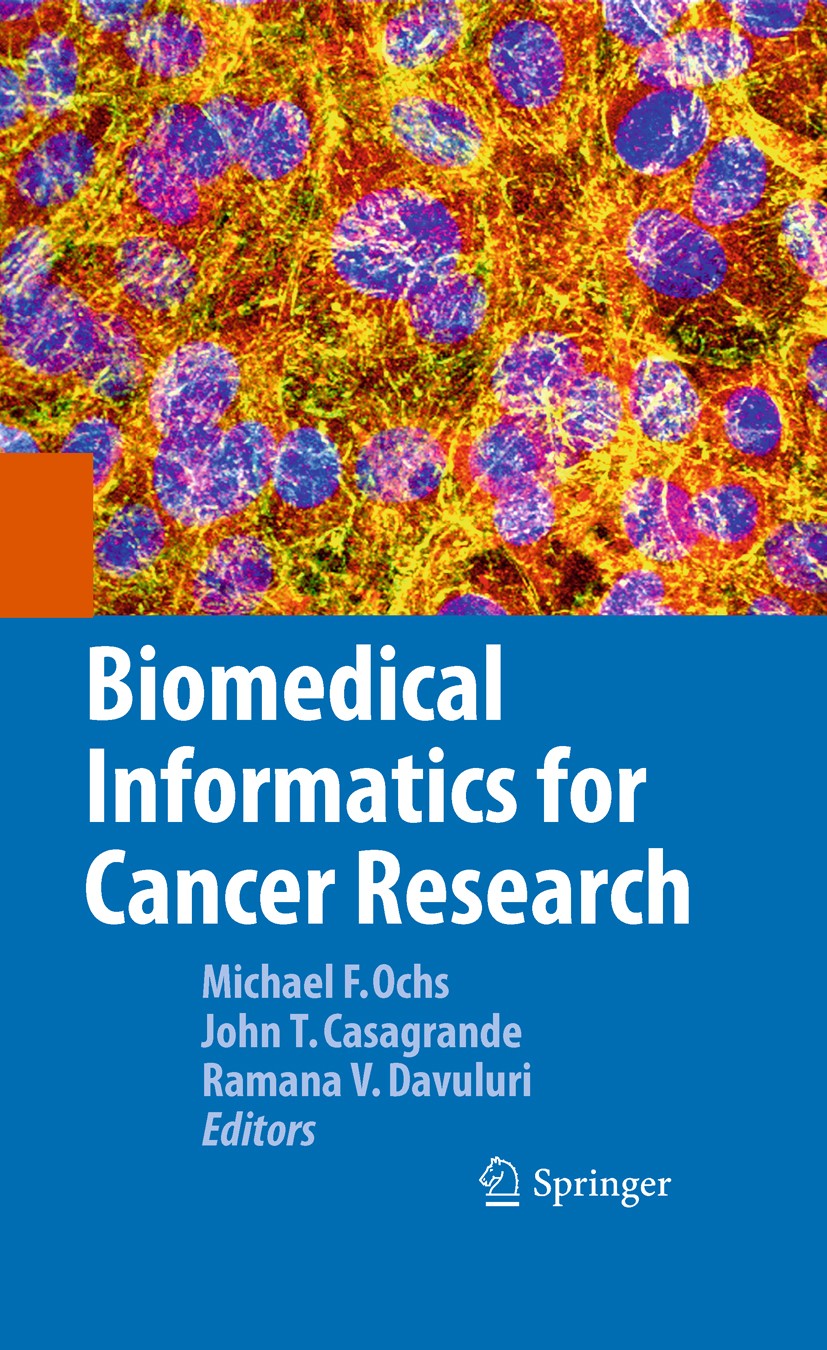| 期刊全稱 | Biomedical Informatics for Cancer Research | | 影響因子2023 | Michael F. Ochs,John T. Casagrande,Ramana V. Davul | | 視頻video | http://file.papertrans.cn/189/188067/188067.mp4 | | 發(fā)行地址 | Includes supplementary material: | | 圖書封面 |  | | 影響因子 | view, showing that multiple molecular pathways must be affected for cancer to develop, but with different specific proteins in each pathway mutated or differentially expressed in a given tumor (The Cancer Genome Atlas Research Network 2008; Parsons et al. 2008). Different studies demonstrated that while widespread mutations exist in cancer, not all mutations drive cancer development (Lin et al. 2007). This suggests a need to target only a deleterious subset of aberrant proteins, since any tre- ment must aim to improve health to justify its potential side effects. Treatment for cancer must become highly individualized, focusing on the specific aberrant driver proteins in an individual. This drives a need for informatics in cancer far beyond the need in other diseases. For instance, routine treatment with statins has become widespread for minimizing heart disease, with most patients responding to standard doses (Wilt et al. 2004). In contrast, standard treatment for cancer must become tailored to the molecular phenotype of an individual tumor, with each patient receiving a different combination of therapeutics aimed at the specific aberrant proteins driving the cancer. Tracking the a | | Pindex | Book 2010 |
The information of publication is updating

|
|
 |Archiver|手機(jī)版|小黑屋|
派博傳思國際
( 京公網(wǎng)安備110108008328)
GMT+8, 2025-10-6 05:18
|Archiver|手機(jī)版|小黑屋|
派博傳思國際
( 京公網(wǎng)安備110108008328)
GMT+8, 2025-10-6 05:18


